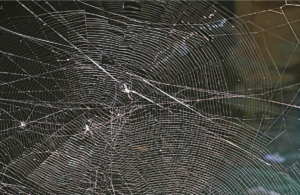“The goal of the Los Angeles Times is to publish news and information of the highest quality,” says the paper’s Ethics Guidelines. “The standards outlined here apply to all editorial employees and to the work they produce for The Times, whether it appears in print, on the Web, on social media, on television or on any other platform.”
There is no wiggle room in this June 2014 document: Los Angeles Times‘ employees social media activity must be “above reproach.”
Furthermore, the guidelines state: “A fair-minded reader of Times news coverage should not be able to discern the private opinions of those who contributed to that coverage, or to infer that the organization is promoting any agenda.”
A recent tweet by Times’ White House correspondent puts that eight-year-old document to the test.
In a blatantly false tweet yesterday, Times reporter Eli Stokols exposed both his bias and his ignorance: “AIPAC trying to take out Jewish Dem @Andy_Levin in primary because he backs a two-state solution — while supporting pro-Israel Rs who wouldn’t certify the 2020 election.”
There is—or should be—a difference between attack ads and journalism.
This Tweet by an LA Times White House reporter is more the former than the latter. pic.twitter.com/XyiFViygsr
— Gilead Ini (@GileadIni) July 25, 2022
On her campaign website, Stevens describes her support for a two-state solution, “a democratic Jewish State of Israel, and a viable, democratic Palestinian state, living side-by-side in peace,” as well as her opposition to the “boycott, divestment and sanctions” movement against Israel. (Emphasis added.)
Make no mistake about it: a strong and enduring partnership between the United States and the State of Israel is paramount to our interests at home and abroad. Bipartisan support for Israel and a two-state solution promotes lasting peace and democracy in the Middle East.
— Rep. Haley Stevens (@RepHaleyStevens) February 11, 2019

Cobweb infested Code of Ethics? (Photo by Judy Gallagher, CC BY 2.0, via Wikimedia Commons)
Credibility, a news organization’s most precious asset, is arduously acquired and easily squandered. It can be maintained only if each of us accepts responsibility for it.
